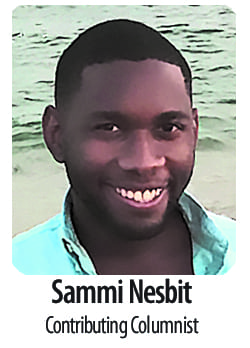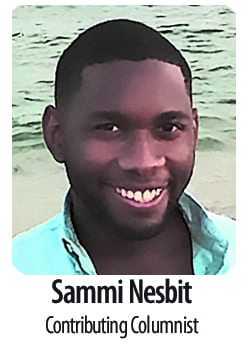The complex relationship between the black transgender community and the larger black community
 Every time one of our transgender brothers or sisters loses their life to senseless acts of violence, I always ask myself: Who speaks up for them? We can sometimes rely on the LGBTQ community as a whole, but unfortunately, a majority of our community’s reactions to these outrages has lowered my expectations.
Every time one of our transgender brothers or sisters loses their life to senseless acts of violence, I always ask myself: Who speaks up for them? We can sometimes rely on the LGBTQ community as a whole, but unfortunately, a majority of our community’s reactions to these outrages has lowered my expectations.
Many of those who are murdered are black transgender women. How does the black community as a whole respond?
The relationship between the straight, cisgender black community and the LGBTQ is complex and layered. Some of the fundamental components of this relationship are the black church, white vs. black privilege, and the black LGBT community’s relationship with the straight, cisgender black community.
At the beginning of the gay rights movement, it was white males who were the poster children for liberation, even though black and Latina trans woman threw the first bricks into the Stonewall Inn.
When the AIDS crisis plagued the community in the 1980s, most members of various resistance groups such as ACT Up were white. But the plague would end up nearly decimating the black LGBT people that lived in the shadows. So now, as we rise to fight for transgender rights, we must do better, because we deserve a better future.
The straight black community can be one of our strongest allies, if we extend the olive branch. And we must start by embracing our own black LGBT brothers and sisters.
We must recognize black gay men as more than fetishes and fantasies, and black trans women as more than sex workers.
When we fight for the rights of transgender children in school, we must remember that there are also black and Latina children who experience problems with acceptance, and we must place their stories alongside the various narratives of oppression and bullying.
To understand the straight, cisgender black community, one must understand the dynamics of the black church.
The black church has been the only constant in the lives of almost every black person living in the South. The black church was often a meeting place during the civil rights movement, a place of comfort when loved ones were dying from AIDS, and it serves as a place of unity when an unarmed black man dies at the hands of an officer.
But the black church has also played a part in the attempted suppression of LGBTQ rights, with preachers sometimes delivering fear-mongering sermons and churches expelling members discovered to be part of the LGBT community.
But now, the tide has begun to change, just not as rapidly as some would hope. The days of black church leaders preaching hate are almost gone, and those that still linger in hate face sharp retribution (i.e. Kim Burrell).
Still, the black LGBT community and the straight, cisgender black community have yet to cross one major hurdle blocking progress in building relationship: How do they address the murders of the black transgender women?
The murders of black transwomen at the hands of straight men have long plagued the community. But many have turned a blind eye because of the stereotype that many black transwomen were sex workers and therefore, somehow deserved what happened to them.
This problem was most recently reiterated during an interview with Lil Duval by Charlemagne tha God on the morning radio show The Breakfast Club.
The C-list comedian was asked, “What if you found out one of the women you were dating was a transwoman?” He said he would kill her.
His deplorable comments highlight the growing problem among black straight men (and some women) and their lack of acceptance of transgender women and men. And therein lies the problem.
To begin to change this way of thinking, we must first change our own ways of thinking. Many of our transgender brothers and sisters feel alienated from their lesbian, gay and bisexual peers; they feel excluded. We must support them wholeheartedly, invite them to the table, and let their voice be heard. We must understand their complexities and celebrate them for who they are — loving human beings.
As history is being made in the fight for the rights of the transgender community, this is the perfect opportunity to build a strong alliance with a community that understands the struggle for civil rights: the straight black community.
This is our opportunity to bridge the gap.
Sammy Nesbit is the chief science officer of the Center for Minority Community Health and is currently a doctoral candidate at University of North Texas. He currently researches adolescent black and Latino HIV sero-prevalence behaviors in large urban communities.
This article appeared in the Dallas Voice print edition August 4 2017.


